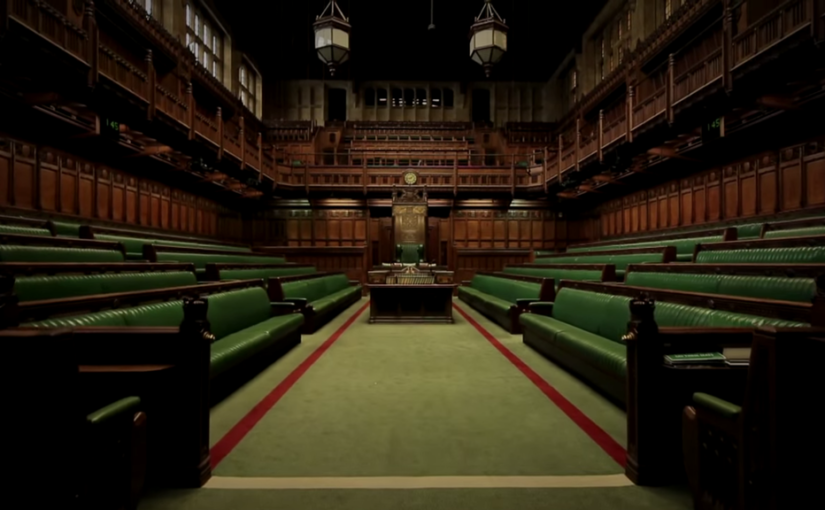In a public health crisis such as coronavirus, buildings have had to be closed and gatherings banned. That has included political institutions such as the House of Commons, which went into recess early.
Yet if Parliament cannot meet, not only can there be no legislative progress, there also can’t be proper scrutiny of the Government.
The problem is not just a UK Parliament one, bodies around the world are having to find ways of balancing protecting health with protecting democracy.
Those familiar with the UK House of Commons and Lords will realise the problem. Members are crowded onto benches. Voting takes place in jammed division lobbies. The maze of passage ways doesn’t lend itself to social distancing. Before Easter’s early recess, changes were made to make protection a little easier. This saw a “two-shift” Prime Minister’s Questions in which MPs swapped over at half time to allow more to take part and observe distancing. Questions remain however about what might face MPs on their scheduled return on 21 April with the Speaker and others examining whether some MPs could take part remotely. If possible and agreed, that could mean a very different feel to Prime Minister’s Questions.
A Commons recess doesn’t necessarily mean an end to activity. Select Committees have been meeting and taking evidence remotely with, for example, the Home Affairs Select Committee holding a video conference with witnesses on 6 April.
There was some disquiet about the earlier than expected start to the recess. Some opposition MPs argued that the scrutiny and challenge role of Parliament could not be carried out if Parliament was not sitting somehow. In the weekly Questions to the Leader of the House on the day before the recess was to start, Labour MP Wes Streeting said this: “I understand the difficulties that we are in, but I have to disrupt the consensus: I do not think it is right for Parliament to go into recess early, and I am worried about how long it will be until we return. I hope that the Leader of the House will guarantee that we will return on the date in April when we are due to do so….”
The Scottish Parliament met to vote on its Coronavirus Bill on 1 April and is now in a planned recess until 20 April. The design of the chamber makes it easier for Members of the Scottish Parliament to maintain distance. There are individual desks, which means members can spread out. Voting is electronic which means no crowding though lobbies.
The Welsh Assembly meanwhile lowered its quorum – the minimum number of members having to be in the chamber for plenaries and then introduced on line meetings of the body. It has another plenary meeting to go before Easter.
As governments around the world take more powers and Parliaments are less able to meet thought has been going on elsewhere about how to maintain scrutiny. One of the more imaginative approaches comes from New Zealand where a special select committee has been set up, with majority membership from opposition parties, to scrutinise the Government specifically over its response to coronavirus. The committee meets on line and it is broadcast on the Parliament’s TV channel.
In Australia there has been fierce debate about the suspension of Parliament. The Government planned a suspension until August, but has had to recall members for at least one debate for legal reasons. Opponents of the suspension argue that other crises have not stopped Parliament and that democracy is at stake.

Nearer to home, the European Parliament, surely one of the largest single group of Parliamentarians in the world is meeting (mainly) on line and voting on line. Changes were introduced for the late March plenary with only a few members needing to be in the chamber but everyone able to vote electronically, wherever they were. Political groups were still concerned that MEPs needed to do more to fulfil their roles to represent and to scrutinise. This has led to a special session being organised for late this month (April).
Other European Parliaments have adopted rules to allow on line meetings. Poland’s lower house, the Sejm, had to have an in person meeting to do so in late March.
Parliaments are having to walk the line between safe operation and ensuring they do their job. But the forced changes of these months may well cause rethinks across organisations about how best they do their work. Perhaps some of the old customs will go.
Edge Hill University’s political degrees include advanced material on Parliaments and how they function.
The featured image on this blog is a still taken from UK Parliament’s video The House of Commons Chamber.

